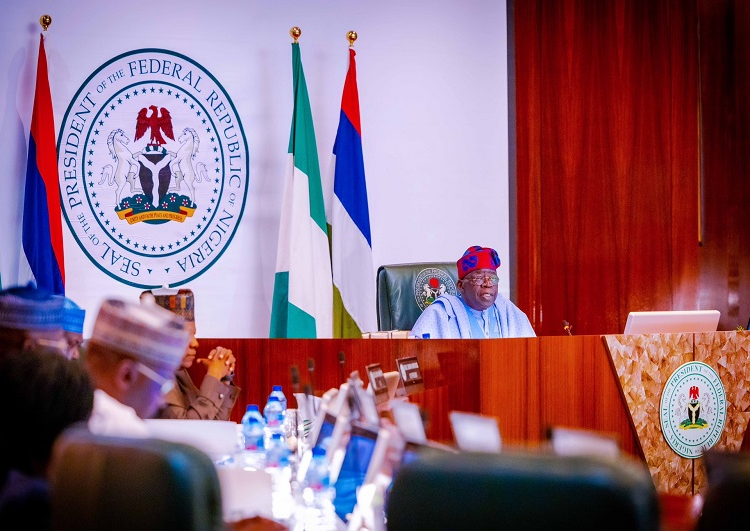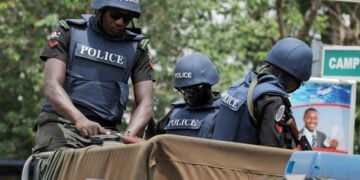President Bola Tinubu tweaked his cabinet recently. It wasn’t on a massive scale as some had anticipated, but it was needed. The shake-up was to provide the energiser that many watchers of his administration felt was essential.
He rejigged some offices, let some ministers go and brought seven new persons on board.
The ministers that were relieved from the cabinet include Prof. Tahir Mamman, (Education), Uju Kennedy Ohanenye (Women Affairs), Mohammed Gwarzo (State for Housing), Jamila Ibrahim (Youth Development), Lola Ade-John (Tourism) and the suspended Minister of Humanitarian Affairs, Betta Edu, who has been replaced.
The new ministers and their portfolios are Nentawe Goshwe Yilwatda (Humanitarian Affairs and Poverty Reduction), Mohammed Maigari Dingyadi (Labour and Employment), and Bianca Odumegwu-Ojukwu (Minister of State, Foreign Affairs).
Others are Jumoke Oduwole (Industry, Trade and Investment), Mukhtar Maiha (Livestock Development), Yusuf Abdullahi Ata (Housing and Urban Development), and Suwaiba Said Ahmad (Minister of State, Education).
While the sack of the ministers was welcome, the reassignment of ministers to new ministries was received with cautious optimism.
The reception of the new ministers is broadly positive, save for concerns about geographical spread. Naturally, the expectations of them are high, and this applies to both the old and new ministers.
For the old ministers, while some, without a doubt, distinguished themselves, others were just a little above average. By far, the minister of Federal Capital Territory (FCT) Nyesom Wike proved to be a clear standout. Also, the ministers of Solid Mineral Development, Dr Dele Alake, Interior, Olubunmi Tunji-Ojo, Information, Mohammed Idris, and Works, Dave Umahi, have had commendable outings so far.
But a lot more needs to be done. Given the situation in the country, the verdict isn’t likely to be positive. The narrative is far from positive from the economy to security and human development.
With increasing fuel prices, high inflation and unemployment rates, and rising exchange rates, the cost of living is still far from reasonable.
Worse still, the International Monetary Fund’s (IMF) indication that the aggressive economic reforms initiated by this administration are still struggling to have a positive impact 18 months after shows that much more than a lot needs to be done.
With the coming of these new ministers, we hope that a much-needed new burst of energy will be injected into this administration. Their infusion into this cabinet marks the end to what’s left of the honeymoon this administration enjoys. The era of excuses is over.
Interestingly, some of the new ministers hold strategic ministries, from education to industry, trade to foreign and humanitarian affairs. These are vital ministries that, if effectively manned, would make a major impact in the short to long term in Nigeria.
We expect healthy competitive cooperation among the ministers, old and new. But it has to be right enough not to become disruptive and distract the administration. Such competition helps to spur the team and drive them to deliver their best.
It’s good that the president has repeatedly noted that the buck stops on his table. He has also noted that he sought the job and will not be given excuses for not delivering on his promises.
It is in his interest to be more tasking of his ministers, as they are a vital part of his legacy as president. He should not hesitate to wield the big stick and get replacements quickly. Of course, we urge the president to be mindful of ministers who tend to be more flash without substance.
There is little doubt now that the president needs to dig really deep to ensure the realisation of his bold reforms. He would need all his ministers to bring their A game.
However, the prolonged uncertainty over the fate of the former minister of Humanitarian affairs cannot be afforded to happen again. The implications of such uncertainty are too costly for any country, much more for one grappling with the myriad of genuine humanitarian challenges the nation faces.
As we earlier indicated, the President should strive to address the perception of his cabinet as lopsided in favour of one ethnic group. While we argue that merit is essential in appointments of this nature, it is also pertinent to emphasise that no ethnic or geopolitical entity has a monopoly on those.
As an opposition politician, the president was at the forefront of the campaign against imbalances in the distribution of political offices and appointments. It is based on this that Nigerians expect him to live up to his own standard by disabusing the minds of critics that he is introducing into his administration the dreaded ethnic hegemony.





